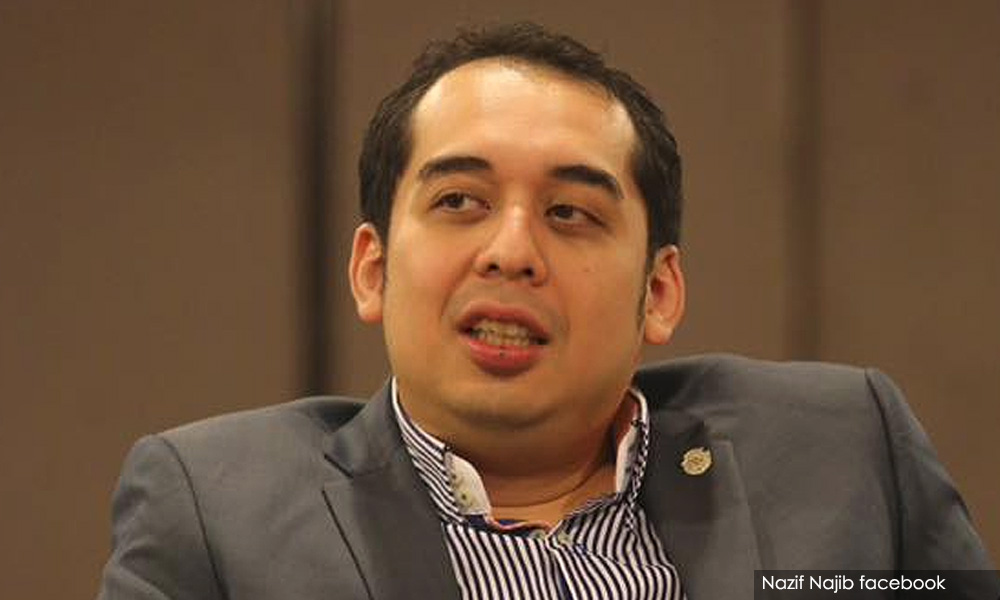A judge remarked that the B40 (bottom tier households with less than RM4,850 monthly income) may be wiped out if the Federal Court allows Najib Abdul Razak’s appeal to nullify a provision in the Income Tax Act 1967.
P Nallini, who is a member of the five-person Federal Court bench that today heard the former prime minister’s appeal to quash the RM1.69 billion tax summary judgment against him, made the remark while seeking clarification from the appellant’s lead counsel Muhammad Shafee Abdullah.
Former finance minister Najib’s appeal hinged on his contention that Section 106(3) of the Income Tax Act 1967 (ITA) is invalid for contravening Article 121 of the Federal Constitution. Article 121 is in relation to the powers of the judiciary in Malaysia.
Section 106, in general, empowers the Inland Revenue Board (IRB) to institute a civil action in court to recover tax arrears and penalties from taxpayers.
Section 106(3) specifically states that in relation to IRB civil action to recover taxes, the court “shall not entertain any plea that the amount of tax sought to be recovered is excessive, incorrectly assessed, under appeal or incorrectly increased”.

In seeking clarification from Shafee over his submissions that Section 106(3) is invalid, Nallini remarked that the courts are slow to disturb the validity of such provisions as they are essential to Malaysia’s ability to collect taxes as part of the government's efforts to redistribute wealth among the people.
She said that while Najib’s case may be extreme with over a billion ringgit in alleged tax arrears, she added that the country still needs to collect taxes and the government’s ability to collect taxes may be jeopardised if every taxpayer is allowed to present their statement of defence during the tax suit against them in the civil courts, causing delay in the tax-collection.
“If every taxpayer can come to court and have a full trial (against the IRB’s tax suits and with no summary judgment allowed) on the amount assessed, the country would come to a standstill. The B40 would be wiped out as there would be no money (in the government’s coffers),” Nallini said.
When Shafee replied that Section 106(3) infringes on the right of fair trial in tax suits, Nallini remarked that taxpayers have the avenue of lodging an appeal with the Special Commissioners of Income Tax (SCIT), which is qualified to hear complaints on any incorrectly assessed tax amounts.
The judge said that Najib (above), like all taxpayers, can be allowed by IRB to pay their taxes in installments while awaiting the outcome of their tax-assessment appeals with SCIT.
She added that in the event that a taxpayer is dissatisfied with the SCIT ruling, (he or she) could always go back to the civil courts via way of a judicial review to challenge the tax appeal authority’s tax assessment.
However, it should be noted that Nallini’s remarks are not a ruling but rather remarks and queries raised by an apex court bench member to try to assist the appellant’s legal team to focus on certain areas in their submissions.
In response to Nallini’s queries, Shafee said that payments in installments are not feasible as the RM1.69 billion amount is “humongous”, adding that IRB alleged incorrect assessment made it look like Najib had an income of RM8 billion, which the lawyer rubbished as “not making sense”.
Shafee further pointed out that IRB had taken out separate ongoing bankruptcy proceedings against Najib, which may result in the former prime minister ending up bankrupt before he (Najib) “can even smell the SCIT”.
The lawyer added that the apex court nullifying Section 106(3) would not have an adverse effect on the country, as taxpayers and tax authorities during the hearing of a tax suit at the civil courts can call tax experts to determine what the actual amount owed in taxation.
Meanwhile, IRB’s senior revenue counsel Hazlina Hussain counter-submitted that Najib’s appeal must be dismissed as Malaysia’s tax regime is “pay first talk later”, which is identical to other countries in the world such as Ghana.
She submitted that the judiciary should not accept the interpretation of the law that can lead to floodgates of taxpayers not fulfilling their duty to pay taxes.
“If we agree with the appellant (Najib), then every taxpayer may not pay taxes; they can put up defence (in the tax suits in the civil courts), then there would be further appeal (to the higher courts), and the government cannot collect taxes,” she said.
She contended that the Income Tax Act should be understood as the whole which has the purpose of helping the government function for the people by collecting taxes.
“Direct tax forms more than 50 percent of the government’s revenue, hence it is important for tax to be paid and the provision (Section 106(3)) should not be struck out,” Hazlina contended.

At the end of proceedings today, the five-person Federal Court bench chaired by Court of Appeal president Abang Iskandar Abang Hashim reserved judgment on the appeals by Najib as well as his son Mohd Nazifuddin, who is appealing against a summary judgment involving alleged tax arrears of RM36.7 million.
Besides Abang Iskandar and Nallini, the other bench members are Federal Court judges Mohamad Zabidin Mohd Diah, Mary Lim Thiam Suan, and Abu Bakar Jais.
The summary judgment, issued by the Kuala Lumpur High Court in 2020, allowed the IRB's civil action to seek RM1.69 billion and RM37.6 million from Najib and his son respectively, while dispensing with the need to consider the duo’s defence against the suit.
However, there is an existing apex court order to stay this summary judgment, pending disposal of the duo’s appeal before the Federal Court.
Main appeal
The duo’s appeals basically seek for them to quash the summary judgment and be allowed to present their defence against the tax suits before the civil court.
Najib and Nazifuddin failed in an earlier appeal before the Court of Appeal on Sept 9, 2021, to reverse the summary judgment.
The bankruptcy proceedings, commenced by IRB against Najib and Nazifuddin before the Kuala Lumpur High Court, are also currently stayed, pending disposal of the duo’s main appeal.
In their appeals, Najib and Nazifuddin’s legal team contended that Section 106(3) is unconstitutional as it takes away the court’s power (as per Article 121) to consider the defence of a taxpayer against the IRB’s civil actions to recover the tax.
Lawyer Anand Raj acted for the Malaysian Bar, which acted as amicus curiae during the apex court proceedings.
An amicus curiae is an individual or organisation who is not a party to a legal case but is permitted to assist the court by offering information, expertise, or insight linked to the issues in the case. - Mkini




No comments:
Post a Comment
Note: Only a member of this blog may post a comment.